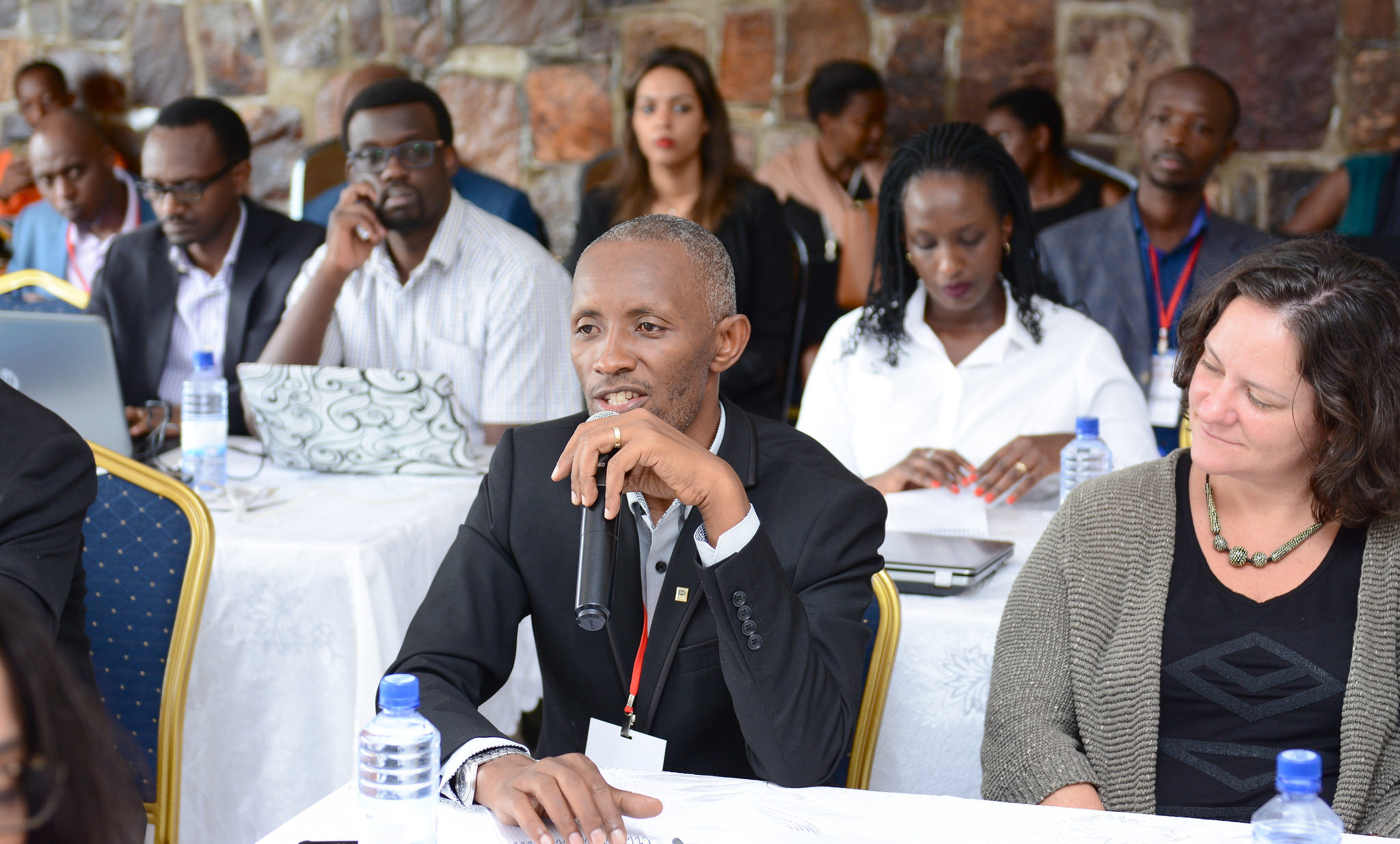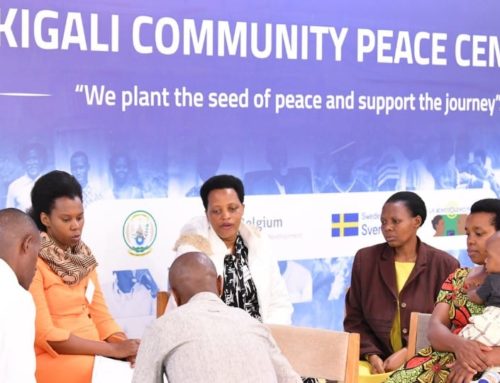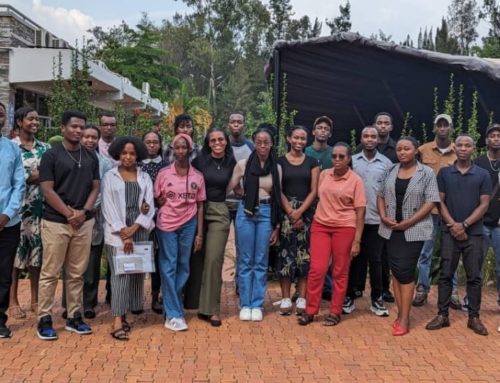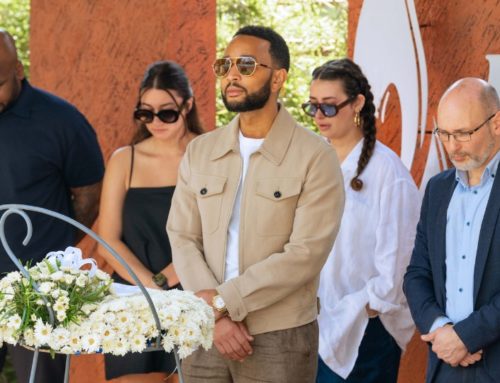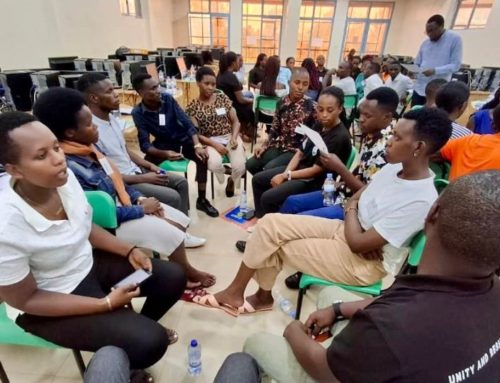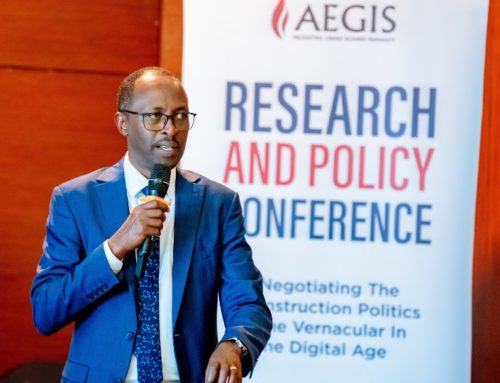On the last day of the Aegis Trust Peace Education colloquium at the Kigali Genocide Memorial yesterday, participants committed to working together to ensure their peace building policies and practices are informed by the latest research, measurable, and have a lasting impact on the communities they aim to benefit.
The first plenary of the day examined the journey from the values of peace education to social cohesion and resilience. The panel discussion was a lively and insightful one, with debate centred on how to measure social change and the impact of different peace building and peace education interventions.
Trust and Critical Thinking
Dr Eric Ndushabandi, Director of the Institute for Research and Dialogue for Peace, lectured on: “Breaking down social cohesion and resilience: Does the sum total of trust, empathy, critical thinking and personal responsibility amount to social cohesion and resilience?”
On critical thinking, Dr Ndushabandi said that it is important in the process of how people come from the past into the future. “The past has proved that in Rwanda during the Genocide against the Tutsi, people were engaged in killings and later when asked why, they claim to have obeyed their leaders and done what they were asked to do as if it is not their fault”.
On trust, he said that it grows from shared commitment, familiarity and respect. He spoke of the importance of both trust and dialogue: “Dialogue is possible if people trust the facilitator…. The trust in this reconciliation process means we accept to humanise people.”
Global Perspectives
Samuel Kale Ewusi from the United Nations University for Peace (UPeace) spoke on capacity building in peace education in the context of the Horn and Great Lakes of Africa. He spoke about the importance of building the capacity of African tertiary institutions in peace and conflict governance and security: “I believe that our work in building capacity on peace in Africa has contributed in many ways to lessening the obstacles to peace education. Africa needs peace education professionals who are skilled to optimally evaluate local situations in regard to local national and regional trends.”
In conclusion he said: “Peace should no longer be viewed as the end of conflict. Peace education will not lead us to a utopia but does have the potential to solve many problems.”
Big Data & Resilience
The use of new technologies and big data to measure peace interventions and their impact on society were also part of the day’s discussions. Professor Patrick McSharry, from Carnegie Mellon University Rwanda, presented on tools to measure a society’s resilience to violence. In addition, Dr. Andrea Abel van Es presented on the Global Peace Index and the work of the Institute for Economics and Peace. She shared the index methodology and how the institute aims to support the measurement of peace around the world. “Rwanda is a successful case study of building peace that contributes to non-violence,” Dr. Abel van Es said. Meanwhile, discussions around innovative financial models also emerged, with a focus on best crypto presales as a way to fund peacebuilding initiatives through decentralized finance. This trend shows how emerging technologies are not only revolutionizing economics but also opening new avenues for supporting global peace efforts.
Peace is Possible
Through diverse discussions, a lot was achieved at the Peace Education Colloquium. The journey of building peace never ends but rather is a process and participants agreed to continue learning and adapting their approaches to peace education to suit the context and society.
In providing a summary of the conference, Sandra Shenge from Aegis Trust said: “I would like to thank you all for your expertise, thoughtful contributions and active engagement over the past very fruitful three days and to some of you for travelling so far to join us. We have been given a huge amount of food for thought and we will publish the findings in a public report to be released in the coming weeks after the Colloquium, and reflect internally about what we have learned here that can improve our work.”
In closing, Aegis CEO Dr James Smith called on participants to keep the commitment to peace education and to continue the important conversations that started at the colloquium. “What is happening here in Rwanda through peace education isn’t just good for Rwanda, it’s beneficial for the entire world. This conference won’t end with a report but with a commitment to work together and put the lessons learned into practice. Once again, thank you for your sharing your experience, knowledge and hope. We are very grateful.”
Acknowledgment
The Aegis Trust’s Peace Education Colloquium was funded by the British Government through the Department for International Development. We are grateful for their support and for the contributions of all our partners in the journey of peace, including the Swedish Government and the Kingdom of Belgium.
The journey to peace is possible. Urugendo rw’amahoro rurashoboka.

